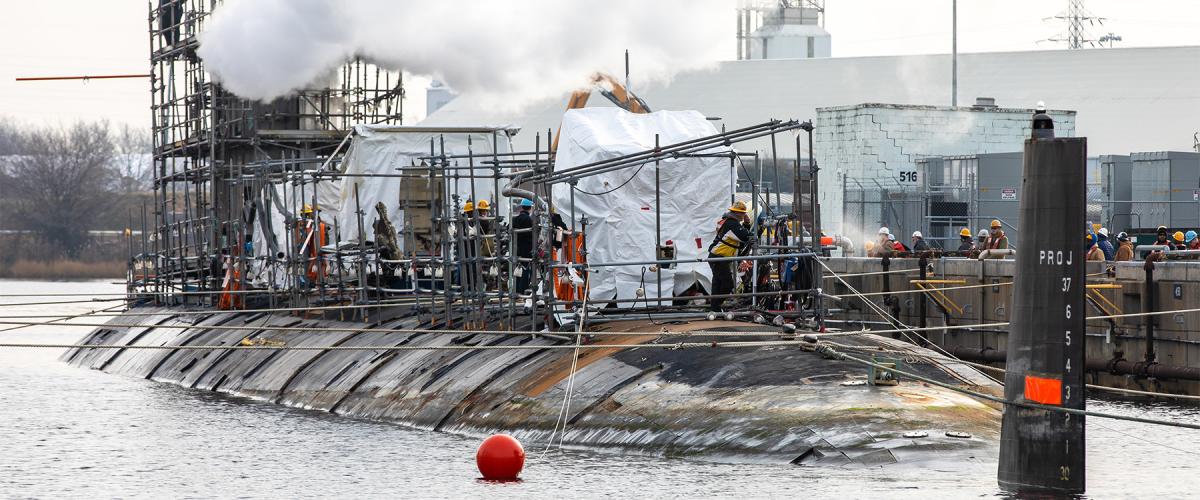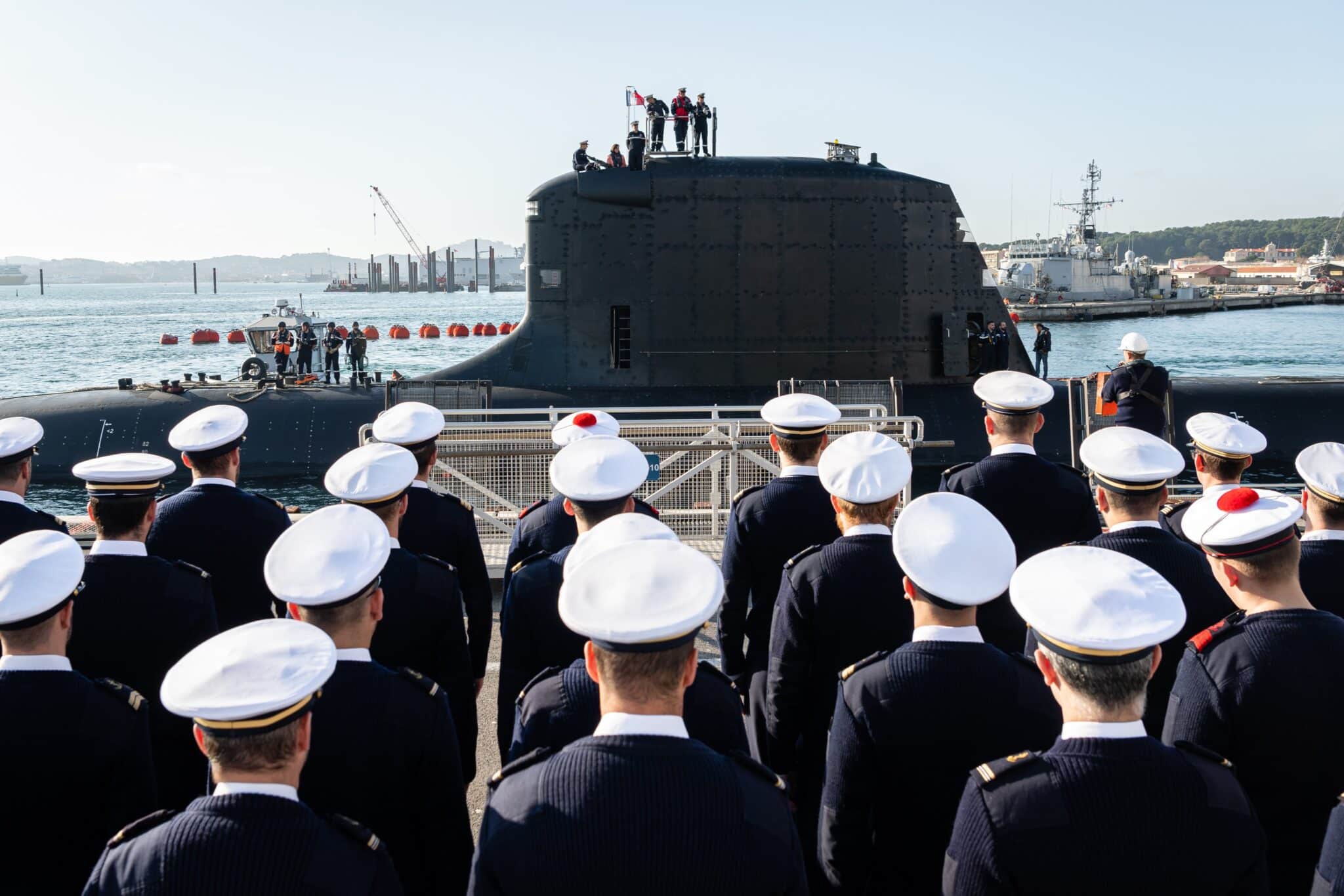Opinions vary and we will have to disagree on Virginias. I think they are a great SSN but the cost is too high. Hence I think this is a bad decision.
I don't agree with your comment on Barracuda (Attack Class) not starting. The last stage of the functional review had just been completed when the Attack project was cancelled in 2021. It was ready to proceed to the next stage, which would have been detailed design with construction starting 2022/23. There was criticism of slow progress on Attack. Naval Group in 2020 changed their local manager and was catching up to schedule. Lockheed Martin had made good progress on the US combat system design integration. Contrary to some reporting it was also not over budget. Adm Greg Sammut reported that recent progress had been good just before cancellation. In my view the timing of Attack cancellation was chosen because any later and it would have meant abandoning a started D&C contract.
Documents obtained under FoI show defence leadership given positive advice about Attack-class submarine progress

www.theguardian.com
If you check the last official update construction of the Attack Class was due to start 2022/23. Covid might have delayed that a few months but there is no suggestion construction would have started any later than 2023, with some non-official sources suggesting steel for the hull might be first cut in 2024. The Attack project was cancelled just as it was about to gear up and order pre-start components.
Research

www.aph.gov.au
I admit to bias on this one because I live in Adelaide and have friends who lost their jobs when Attack was cancelled in 2021. I think that the manner and timing of the Attack Class cancellation was a loss for Adelaide shipbuilding and navy funding. Cancelling FSP (Attack) allowed the government to reduce budgeted funding for FSP construction of $2 billion per year from 2022 onwards. The subsequent May 2022 budget (the last Morrison budget) saw this money withdrawn, with no increase in other naval project funding. The army was given $4 billion in funding for new Abrams tanks. The Abrams project had not been identified as a funded project prior to 2021. So the cancelled sub funding became a financial windfall for an unscheduled army project.
The cost of AUKUS was at that time still unknown, and no funding was allocated except for the Task Force in Canberra. In my view the main winners from AUKUS were consultants in Canberra, not the navy or shipbuilding. The ASC shipyard upgrade in Adelaide was also cancelled with the AUKUS decision. That saw 700 jobs lost with Laing O'Rorke, in addition to the 400 jobs lost with Naval Group in Adelaide. A contract was recently signed to recommence the ASC shipyard upgrade construction. AUKUS effectively delayed that work 2 years.
Now AUKUS has been announced with a huge cost estimate ($260 - $368 billion). Australian sub construction has effectively been delayed ten years, with the start date announced as the "mid 2030s". Most people in Adelaide with any actual experience of sub construction from the Collins build will be retired by then. A new generation of builders will be trained, but the opportunity to transfer experience will have been lost.
I am not opposed to the decision to move to nuclear powered submarines (SSNs). Operationally it makes sense for the RAN given Australia's geography. It is a response to the naval arms race occuring in Asia. I also think that fears of nuclear safety by critics are overblown. Between the US, UK and French navies they have safely put to sea over 200 SSNs in the past 60 years, without a single external radiation leak. The safety record of western SSNs is far better than land based nuclear reactors.
From everything I have read the Virginia and SSN AUKUS will be excellent submarines. Yet I now question the choice. The cost and timing of construction is wrong for the RAN IMO. I think it was decided on political and not technical or security grounds. Shifting from the French Attack (Shortfin Barracuda SSK) to the French SSN (Barracuda) would have reduced delay on construction (detailed design already done), reduced crewing pressures and vastly reduced cost. I do not suggest that the Barracuda SSN is superior to the Virginia or SSN AUKUS. It is only 2/3 the size and half the firepower. Yet it is also half the cost, less risk and less delay. Barracuda SSNs would still be acoustically superior to Chinese and Russian SSNs.
There were some half truths told to justify cutting the French SSN out of the AUKUS choice. It is true that the French SSN needs to be refuelled every ten years. But that is a relatively automated process that can be done in weeks. The infrastructure for it could have been built at ASC for a fraction of the cost of AUKUS (perhaps $2-3 billion). Since the French SSNs run on Low Enriched Uranium (LEU) reactor cores could have been stored locally. The existing medical research reactor at Lucas Heights in Sydney runs on LEU, and is regularly refuelled here.
Whereas the "sealed unit" claims about the US and UK HEU reactors are false. They require very complex mainenance every ten years including replacement of critical safety and control components that degrade over time from being irradiated. The ten year maintenance cycles of US and UK SSNs take at least six months, sometimes years.
The urgency of the Navy’s submarine maintenance crisis necessitates a bold and innovative response. More than one-third of the nation’s SSNs are in extended maintenance availabilities vice being at sea.

www.usni.org
By comparison the latest French SSN has been designed to reduce maintenance. This is an issue that has been given insufficient attention IMO.
The French MoD announced that the French Navy' Suffren nuclear-powered attack submarine (SSN) and its blue crew completed their first operational deployment with the Charles de Gaulle carrier strike group on January 4, 2023.

www.navalnews.com
There have really been two shifts in AUKUS. First in 2021 we went from "regionally superior" SSK to SSN. Then in 2023 we went from "an SSN" to committing to the most expensive SSN choices possible. When AUKUS was first floated groups like ASPI suggested that going with the UK Astute class might double the whole of life costs of FSP from $90 billion to $130 to $170 billion. Now with a fleet of Virginias and SSN AUKUS (surely a maintenance nightmare to sustain both) the cost has doubled again to $260 to $368 billion. This will have major impacts on the ADF. If the Hunter Class budget is cut back, AUKUS will be why.
So I agree with the shift from SSK to SSN, but I think we have gone much to far in choosing a very challenging SSN to acquire and sustain.
Moderators if you are unhappy with this it can be stricken. I am not criticising people's efforts to deliver AUKUS. I am criticising the political decisions.



